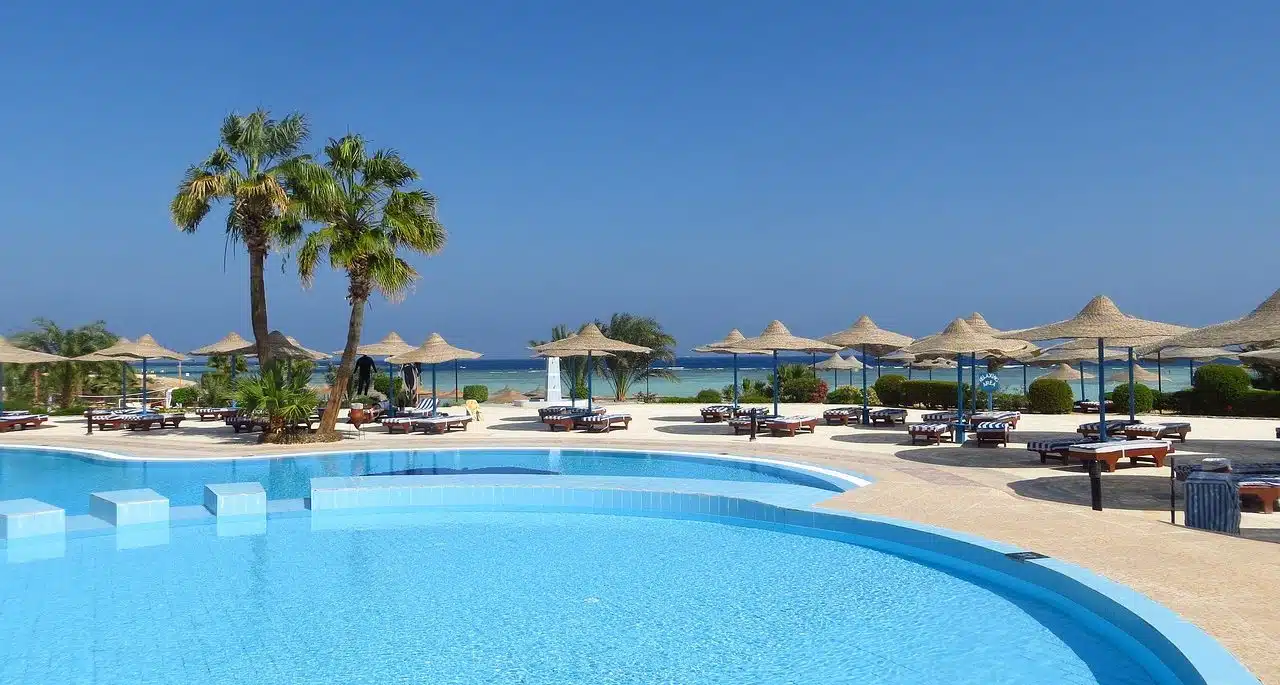
An artificial reservoir of water is called a swimming pool.
Swimming pool is an artificial water reservoir that is used for recreational, sports or decorative purposes. Known in some countries as a pool or alberca , the swimming pool - a term that comes from piscīna (a Latin word) - allows people to cool off in the summer , practice swimming or play water games, among other activities.
For example: "In a while I will go to the club pool," "My dream is to have a house with a pool," "Unfortunately the pool is not full, so we won't be able to cool off even though it's so hot."
Different types of swimming pools
We must not forget either that there are natural pools spread all over the world. Thus they have great beauty and allow people to take a bath in the middle of the environment. Among the best known are the Spanish ones in Sierra de Gata , in Cáceres .
Since Roman times, man has designed various water reservoirs to take advantage of its benefits without having to resort to rivers, lakes, oceans or other natural means. Swimming pools can have very different characteristics and sizes, depending on the space available and their purpose.
In private homes, it is possible to find removable pools that are only assembled in the summer. These are small pools, generally made of polyester. Some houses , however, have stable pools whose structure is buried.

Swimming is usually practiced in swimming pools.
Water care
Sports clubs, for their part, usually have large swimming pools so that many people can use them simultaneously. When the pool has some type of roof or coverage and the water temperature can be regulated, it is called a heated pool.
Typically, chlorine is applied to swimming pools to purify the water and prevent the proliferation of bacteria and insects in the water. It is important to control certain parameters and quantities when adding chlorine to pool water: otherwise people may suffer from burning eyes and other discomforts.
However, it should not be overlooked that, in recent years, in order to ensure that the water is in perfect condition for use and that it does not cause damage to people's health, the demand for what is known as such as salt chlorination . This is a pool water maintenance technique that is based not on the use of chlorine but on salt, as if it were the sea.
This salt, after passing through a current circuit and the so-called electrolysis taking place, ensures that the water is in perfect condition.
If this system has experienced notable growth, in terms of demand, it is because it brings with it a significant number of benefits:
- It does not cause redness of the eyes in people, as chlorine does.
- It is more environmentally friendly.
- Avoid the use of chemical products.
- It is very convenient, since it hardly requires maintenance and works for several years.
- It is a much cheaper alternative.
- Aesthetically, the water looks much better.
- It seems that in the pools where salt chlorination is applied there are no problems with wasps or bees.
